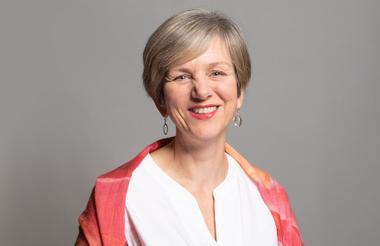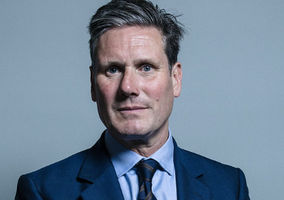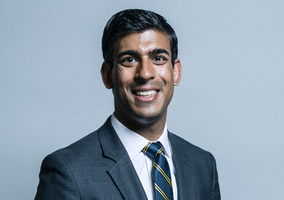A Labour government would not mean “tonnes of additional funding” for the charity sector, though it wants to provide support, the shadow civil society minister has said.
Speaking at NCVO’s voluntary sector hustings, Lilian Greenwood said that if Labour wins the next election, its changes to local government could release more money for civil society.
She said local government would provide longer-term funding settlements which could make more money available for charities.
“It should allow them [local government] to give more certainty and in a way that actually releases more funds because I know when I talk to voluntary organisations in my constituency and across the country, often they’re bidding for short-term contracts.
“So, if we can have a bit more long-termism, and a bit more forward planning, I think that will allow more resources to be available for the delivery of those services and we do want to be able to provide more resources.”
Greenwood said the party’s key goal is to grow the economy, which would increase tax revenues and allow Labour to make investments into public services.
She added the party wants to “work in partnership to provide support for the sector” but it has to be “scalable” and “sustainable”.
Greenwood emphasised that if Labour come into government, there is not going to “be tonnes of additional funding” for civil society.
She said: “I'd like to be able to say that, but I can't, and so we have to look at other ways to bring more resources into our communities.”
Civil society a ‘leading changemaker’
Greenwood said: “Over the last 14 years civil society has made the best of times in the worst of times. You kept us going through austerity, a global pandemic, conflict overseas and a cost-of-living crisis. We've seen civil society in all its brilliance and we owe you a great debt.
“For too long, many in this current government have seen parts of civil society as an irritant, or an extension of the opposition, when all you were trying to do was speak up for the voiceless and catch those falling through the ever-widening cracks in our fractured country.
“Well once again, a Labour government means change and civil society will be a leading change-maker for a Labour administration.”
Civil society minister Stuart Andrew said it has been an “honour” and a “privilege” to be minister for civil society for the last two years.
He said: “If I was fortunate enough to carry on in a job that I have absolutely loved doing for the last two years, I would want to further work very closely with the sector.
“I do think we've got more work to do in that area. And it's something that I feel very passionately about because I know that when we work in partnership, what we achieve can be really quite outstanding.”
Tories’ ‘national service’ volunteering initiative criticised
The Conservatives recently announced a new plan to require 18-year-olds to take part in a form of “national service” such as military training or volunteering.
Andrew said while there have been “raised eyebrows” about the policy, he believes this is a way of “trying to attract people” into volunteering that will “build a lifetime of working in our communities”.
He added: “I think it will just give those young people some fantastic experiences, but also hopefully help the sector as well by knowing that they will have this regular support coming their way.”
Other participants in the voluntary sector hustings disagreed with the proposal.
This included Ellen Forman, charities spokesperson for the Scottish National Party, Liberal Democrats’ candidate Angus MacDonald, Green Party candidate Stephen Ashfield and shadow civil society minister Greenwood.
Commenting on the hustings, CEO of NCVO, Sarah Elliott, said: “Volunteering in its very nature, isn’t volunteering if it’s mandated. Any type of forced participation is not only offputting for people, it can also prevent them from building a love of giving their time to the causes that matter to them.
“We know people who do volunteer get so much out of it, so instead we want to see politicians support our vision for a long-term plan to motivate and inspire people to give something back.”
Civil society minister and philanthropy
Greenwood would not say whether she supported having a minister for civil society in the cabinet, saying that was “over my paygrade” to decide.
She insisted that the sector would have a place in every government department, including the Treasury.
Andrew said that while his role is placed in the Department for Culture, Media and Sport (DCMS) that does not mean he does not work “very closely” with his colleagues in the Cabinet Office.
His engagement with civil society motivated the government’s National Youth Guarantee, he said, as these organisations are the ones often providing much of the services being discussed.
“It was through that engagement that it became obvious they needed support through the cost of living and we've got that £100m [for the sector], and we recently started work on philanthropy.”
He added: “America does this very well. And certainly, parts of the UK do this very well. But there are whole swathes of the rest of the UK where we could do better.”
Greenwood also mentioned that a Labour government would work on increasing philanthropy in the UK, which she said has a “huge potential” to bring in extra resources.












